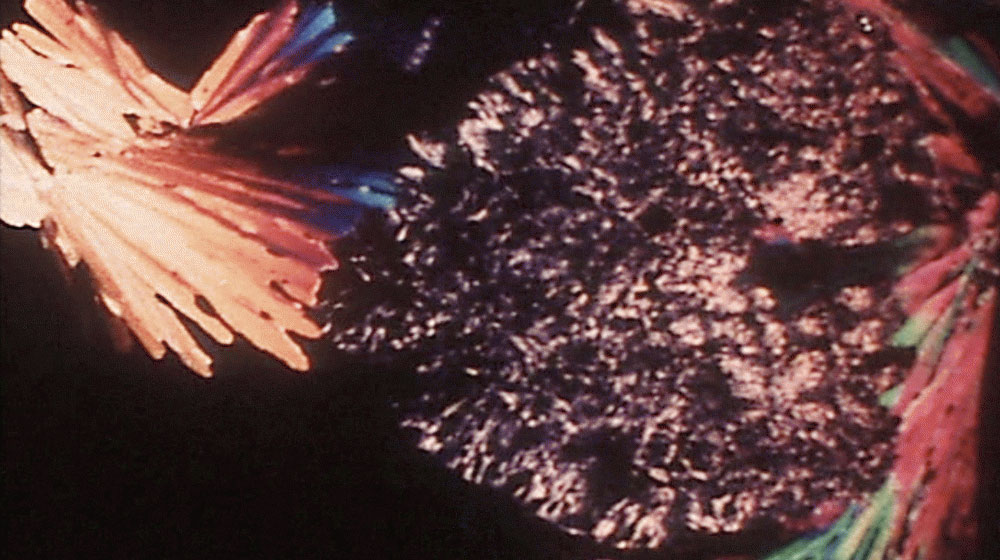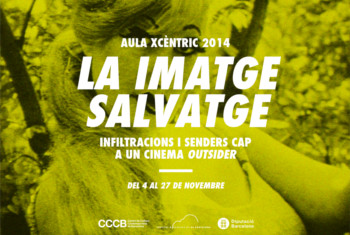Xcèntric Workshop 2012
THE WHOLE WORLD IS WATCHING!
A Documentary Workshop
From 11 April to 16 May
Directed by Andrés Hispano (audiovisual producer and curator) and Félix Pérez-Hita (producer, screenplay writer and editor of videos and documentaries)
“The whole world is watching!” was a brief rallying cry voiced in 1968 by demonstrators in Chicago that changed everything. It was the alarm bell set off by the existence of the global village, the awareness that featuring on the screen meant existing, here and in the antipodes, today and forever, as long as the archives remained. Screens had become permeable to more concerns, communities and opinions than many authorities liked. Since then, our idea of the world has continued to increase in complexity.
As screens have multiplied in quantity, format and ubiquity, the traditional testimonial, historical or anthropological function of the documentary has been implemented by another, more reflective, creative, essayistic and openly subjective. In this vast realm of non-fiction, strategies continue to flourish, from recreation to appropriation, as does the diversity of issues addressed, and those that centre on the production, circulation and interpretation of images are particularly interesting.
In fact, there are countless issues that cannot be addressed without taking into account the way screens previously reflected them: discovering them, immortalizing them, idealizing them, reducing them, ignoring them, deforming them, turning them into spectacle... In short, sowing their seeds in us, partially but indelibly.
THE WORKSHOP
The whole world is watching! is a documentary essay workshop designed for people who, as well as watching, want to comment and together analyse some of the possible strategies for interpreting the global world through and by means of images.
Alongside the talks by various guests and discussion of the materials they bring, we will be analysing and commenting on the methods and styles of the main documentary makers featured, particularly Adam Curtis and Errol Morris. We will also present and discuss the strategies adopted in making the Soy Cámara TV programme and in the gestation of the exhibition “Global Screen”.
As Errol Morris says: “the films that most interest me are the ones that push back the limits of the genre, going further than we think is possible.”
From the bold Weberian approach of Adam Curtis (who principally uses recycled audiovisual material) to the investigative thoroughness of Errol Morris (an exemplary interviewer who orders all manner of materials with Cartesian clarity), taking in analyses of works by Harun Farocki, Frederick Wiseman, Werner Herzog and others, we set out to share our experience and the references that have marked it, but above all to stimulate a critical, creative body of audiovisual production.
The workshop will be accompanied (in the Xcèntric programme) by videological dialogues—or screen battles—with guests Jorge Luis Marzo and Joan Fontcuberta, in an attempt, assisted by the public, to reveal some hidden pearls in the boundless ocean of the Internet.
PROGRAMME
11 April, 7 p.m.
ANDRÉS HISPANO and FÉLIX PÉREZ-HITA
INTRODUCTION AND PRESENTATION OF OBJECTIVES
Sharing knowledge and creative strategies as a basis for audiovisual essay. Using the counter-field screens of “Global Screen” to give them content. Hispano and Pérez-Hita will be analysing paradigm works of audiovisual essay and sharing their experience on the TV programmes Boing Boing Buddha (BTV), Baixa Fidelitat (XTVL) and Soy Cámara (CCCB-TVE).
18 April, 7 p.m.
INGRID GUARDIOLA
ASSEMBLING IMPURE REASON: A LOOK AT ADAM CURTIS’S TV ESSAYS
Talk
“Curtis is an obsessive tracker. He takes a ‘risk thesis’ for each documentary series and justifies it by using a voiceover that concatenates arguments, archive images that are hunted down or found, and interviews with different personalities associated with the theme. By ‘risk thesis’, I refer to the way he approaches socially delicate, politically controversial and historically unformulated issues. In a world where ‘other people’s miseries and humanitarian disasters have become the last remaining terrain for adventure’, where politics has gone over to entertainment, where journalism is constant gossip, where ‘events are laundered’ according to models of simulation orchestrated by the media, politicians and corporations, we need to devote more attention and effort of interpretation to more recent history and present-day events which, ‘overexposed in the media, remain underexposed in our memories’. Hence the Curtis’s investigative work, hence the need for his documentaries." (Excerpt from a text published by Ingrid Guardiola in Blogs&Docs, 7/10/2010.)
25 April, 6 p.m.
ANDRÉS HISPANO and FÉLIX PÉREZ-HITA
Workshop
Working with all kinds of materials—audiovisual files (television or internet), orphan films, industrial films, photographs, graphics, animations, etc., perhaps accompanied by ad hoc interviews or a voice-over screenplay—those taking part will be presented with a series of audiovisual exercises and encouraged to produce an investigative piece and screenplay, or a finished audiovisual work using their own ideas and interests, for the end of the workshop.
2 May, 7 p.m.
MANUEL DELGADO
SCOPOPHILIA. SHADOWS THAT GIVE LIGHT. FILMS AS ETHNOLOGICAL MODELS
Talk
For over 10 years, Manuel Delgado has organized the sessions of Scopophilia, extending and taking his university anthropology classes into public space, an audiovisual cornucopia that salvages and relates all kinds of productions, discovering with timely, singular criteria what fiction and filmed discourse have to say about social reality.
9 May, 7 p.m.
JORGE LUIS MARZO
THE REBELLION OF IMAGES
Talk
Images provoke reality. They try to tear up or burn a person’s photograph before him to see his face. Some images have a tangible, lasting social power. Others become ghosts, like when a photograph shows what did not happen. How do images achieve their ends? What do people do with them to turn them into what they are?
16 May, 6 p.m.
ANDRÉS HISPANO and FÉLIX PÉREZ-HITA
Workshop
The exercises carried out in the workshop will be presented, screened and commented by all present at the last session. The works may be produced in groups or individually. It is advisable but not essential for each group to include one member with notions of video editing.






